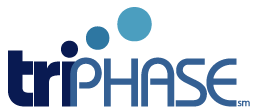 Triphase Accelerator Corporation, a private, drug development company dedicated to advancing novel compounds through Phase II proof-of-concept, announced October 27, 2014 new and expanded strategic collaborations with Celgene Corporation.
Triphase Accelerator Corporation, a private, drug development company dedicated to advancing novel compounds through Phase II proof-of-concept, announced October 27, 2014 new and expanded strategic collaborations with Celgene Corporation.
This announcement was covered in Genetic Engineering and Biotechnology News (GEN), BioCentury Extra (no link available), Pharmaceutical Business Review (no link available), Scrip and BioWorld Today (no link available). It builds on Triphase’s original collaborative agreement with Celgene in January 2014.
The company has also announced a new global license for a fully human, bi-specific antibody targeting VEGFR-2/TIE 2 with Korea’s PharmAbcine.
Triphase initiates Phase I Study Evaluating Marizomib in Glioblastoma (GBM) with Celgene
Triphase has expanded its strategic collaboration with Celgene Corporation. The supplemental agreement adds a Phase I development program that will explore combining an intravenous (IV) formulation of marizomib with bevacizumab in glioblastoma (GBM), an aggressive malignant primary brain tumour.
“We have made important progress in our existing collaboration with Celgene and are now expanding the collaboration with the addition of a new clinical study in a very high unmet medical need setting,” said Frank Stonebanks, founder, president and CEO of Triphase. “This supplemental agreement with Celgene provides us with the resources to study the novel proteasome inhibitor marizomib and explore its potential to make a meaningful difference in the treatment of GBM.”
Under the supplemental agreement, Triphase will receive additional development funds through a cost sharing arrangement with Celgene. Triphase will control product development and retain all commercial rights to marizomib until and unless Celgene exercises its option to acquire the product from Triphase for an undisclosed payment, at which time Triphase would then be eligible to receive regulatory and sales milestone payments.
“GBM is a very challenging disease to treat and represents a significant unmet medical need,” said Annick Desjardins, M.D., associate professor of neurology, a neuro-oncologist and director of clinical research at The Preston Robert Tisch Brain Tumor Center at Duke University Hospital. “Marizomib in combination with bevacizumab in this patient population may provide a new option for patients.”
Marizomib is a novel, highly potent proteasome inhibitor that irreversibly targets and inhibits all three proteasome subunits, allowing for more durable and sustained responses. Triphase is developing marizomib in both intravenous (IV) and oral formulations as a potential best-in-class proteasome inhibitor for hematologic malignancies and solid tumors. Marizomib has demonstrated activity in a Phase I study in patients with multiple myeloma refractory to lenalidomide or bortezomib. An IV formulation has been evaluated in more than 230 patients in four Phase I studies in patients with solid and hematologic malignancies, either as a single agent or in combination with dexamethasone or an HDAC inhibitor.
Triphase is currently evaluating the IV formulation in an ongoing Phase II clinical trial in combination with dexamethasone in a highly refractory multiple myeloma population, including those refractory to carfilzomib. It is also being tested in a Phase I study in combination with pomalidomide and dexamethasone in relapsed and refractory multiple myeloma. Triphase is also evaluating an oral formulation of marizomib in IND-enabling studies. The company has received orphan drug designation from the U.S. Food and Drug Administration and from the EU for marizomib in multiple myeloma.
New Agreement Provides Option for Celgene to Acquire New Bi-Specific Antibody Licensed by Triphase
Under Triphase’s new strategic collaboration with Celgene Corporation, Celgene has the option to acquire a novel bi-specific antibody that Triphase licensed from PharmAbcine. The bi-specific antibody targets VEGFR-2/TIE 2 and is currently in preclinical studies.
“We have made important progress in our existing collaboration with Celgene, and now expand the collaboration with the addition of a bi-specific antibody,” said Stonebanks. “This option agreement and collaboration with Celgene provides us with the resources to study a novel drug and explore the potential to make a meaningful difference in the treatment of cancer with high unmet medical needs.”
Under the new agreement, Triphase received an upfront payment and will control product development and retain all commercial rights to the bi-specific antibody. If Celgene exercises its option to acquire the antibody from Triphase, Celgene will become responsible for product development and retain commercial rights, and Triphase will be eligible to receive regulatory and sales milestone payments if Celgene exercises its option to acquire the antibody.
“We have been pleased with the efficient and clear progress made by Triphase within our existing collaboration,” said George Golumbeski, Ph.D., senior vice president, business development for Celgene Corporation. “We look forward to a second collaboration with Triphase that will focus on a molecule that has produced exciting preclinical data.”
PharmAbcine Announces Global Licensing Deal with Triphase Accelerator Corporation for VEGFR-2/TIE 2 Bi-Specific Antibody
PharmAbcine, a private biotechnology company focused on the discovery and development of novel bi-specific antibodies, today announced a new global licensing deal with Triphase Accelerator Corporation for a fully human, bi-specific antibody targeting VEGFR-2/TIE 2.
The agreement provides Triphase with global development and commercial rights, while PharmAbcine retains rights to China and Korea. The deal included undisclosed upfront, milestone and royalty payments.
“We are very excited about this deal with Triphase Accelerator,” said Jin-San Yoo, founder, president and CEO of PharmAbcine. “The team at Triphase has proven to be a successful and rapid developer of well-differentiated products in an innovative business model, and we look forward to working with them on the development of this novel, bi-specific antibody targeting VEGFR-2 and TIE 2.”
“The science and people at PharmAbcine are exceptional. They have done significant research that will allow us to rapidly develop this bi-specific antibody with the goal of improving the lives of patients with pancreatic and breast cancer, among others,” said Stonebanks. “The company has top-tier investors including Orbimed, Novartis Venture Fund, Oxford Bioscience Partners and Green Cross, and I look forward to working with all of them.”
Triphase anticipates completing late discovery-stage activities for the bi-specific antibody in 2014 and plans to initiate IND-enabling studies in 2015.
VEGFR-2/TIE 2, now known as TRPH 011, is a novel, first-in-class, fully human bi-specific antibody that binds and neutralizes VEGFR-2/KDR and TIE 2 receptors simultaneously resulting in sustained inhibition of tumor growth and angiogenesis. VEGF and TIE 2 pathways, two important routes for formation of new blood vessels in various tumors, are critical for tumor growth and survival. The dependence of tumor growth and metastasis on blood vessels makes tumor angiogenesis a rational and validated target for cancer therapy.
Although current anti-VEGF drugs such as bevacizumab, sorafenib and aflibercept are efficacious, cancer cells develop resistance via induction of angiopoietin/TIE 2 pathway, an alternate route to angiogenesis. Drugs targeting the TIE- 2 axis alone may have similar limitations. TRPH 011, by concurrent dual receptor inhibition of VEGFR-2 and TIE 2, is expected to be more efficacious in both bevacizumab-naïve patients and those failing VEGF therapy due to development of resistance. Preclinical proof-of-concept, both in vitro binding assays and in vivo efficacy in animal models, have demonstrated superiority of TRPH 011 over current drugs in bevacizumab-resistant murine models of glioblastoma and pancreatic cancer.
About PharmAbcine
PharmAbcine is a clinical stage biotech company that develops fully human therapeutic monoclonal antibodies (mAbs) and next generation bi-specific antibodies using innovative discovery technology and excellent human resources for the treatment of human diseases, such as cancer and inflammatory diseases. Our mission is to develop a first-in-class and best-in-class mAb for those target diseases. PharmAbcine was spun out of the Korea Research Institute of Bioscience and Biotechnology belonging to the Korean government.
About Triphase
Triphase is a private drug development company with a primary focus on oncology and operations in San Diego and Toronto. Triphase is dedicated to advancing novel compounds through Phase II proof-of-concept clinical studies using a unique, science-based, high-quality model that is faster and more cost-effective than traditional pharmaceutical and biotech industry drug development approaches. Triphase was spun out of the Ontario Institute for Cancer Research (OICR) and MaRS Innovation, and has a strategic relationship with Celgene for oncology-focused drug development opportunities.

